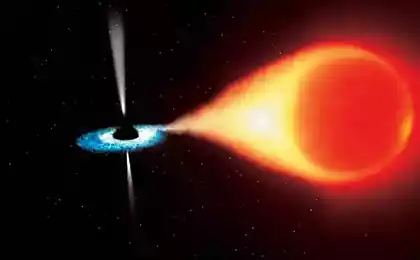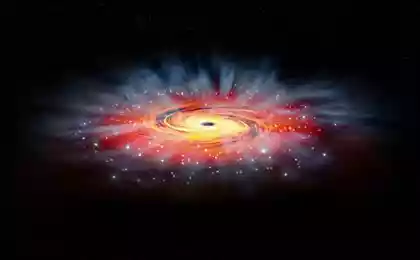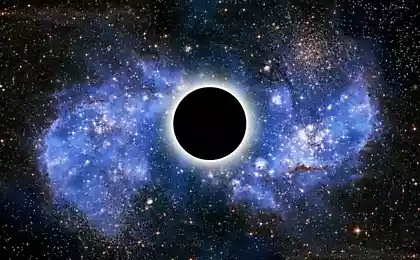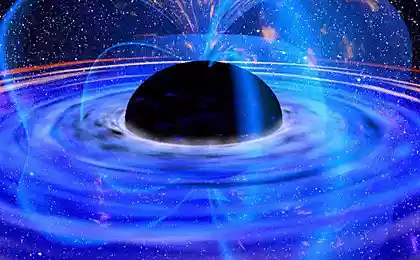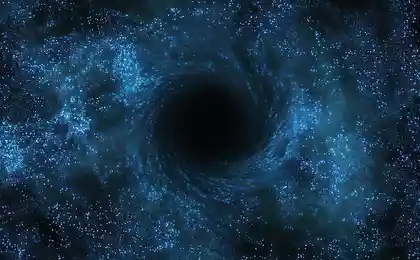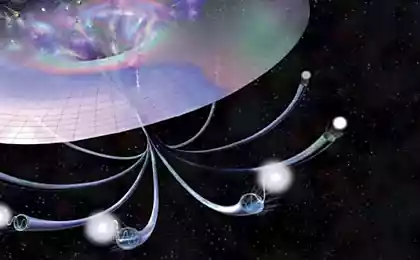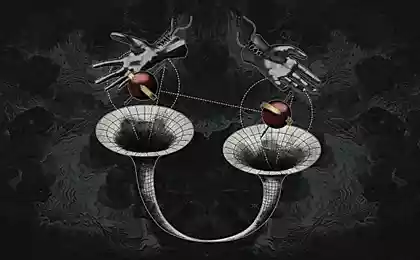531
Black holes: the Paradox of information loss
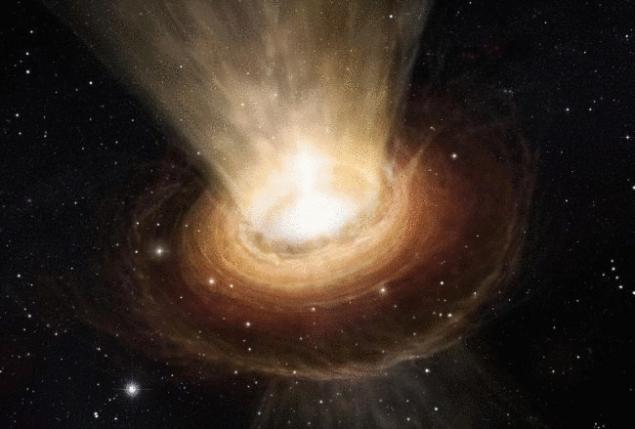
"The paradox of information loss" in black holes — a problem that has plagued physicists for the past 40 years — may not exist. Tear the paper — and it can on the pieces to assemble it back. Burn the book, and in theory, you can do the same. But send information into a black hole and she will be lost forever. Believed physicists for many years. However, there were opposite opinions, and one of the last works speaks in favor of it.
"In our work, the information does not disappear, falling into a black hole, says Dejan Stojkovic, PhD, Professor of physics at the University of Buffalo. She just does not disappear". The study of Stojkovic was published late last month in Physical Review Letters, and Anshul Saini co-authored. The paper describes how the interaction of particles emitted by the black hole, can reveal information about what lies inside, for example, the characteristics of the object, which began with the formation of a black hole, and the characteristics of matter and energy, are absorbed in the hole.
Discovery may be extremely important, says stojković, because even physicists, who believed that the information is not lost in black holes, was not able to show mathematically how this happens. The new work shows specific calculations showing retention of information, he says.
The study marks a significant step on the way to solving the "paradox of information loss" over which physicists have puzzled ever since, as Stephen Hawking first theorized that black holes can radiate energy and evaporate with time. This has created huge problems in physics, because it meant that information inside a black hole can be forever lost if the black hole evaporates — and this is a flagrant violation of the principles of quantum mechanics, which States that information must be saved.
The information hidden in the interaction of particles In the 1970's, Hawking suggested that black holes can emit particles and that the energy loss in this process lead to the fact that black holes shrink and eventually disappear. In the future, Hawking also came to the conclusion that particles emitted by the black hole and leave no hint of what hides inside, and this means that any information caught in a black hole, will be completely lost once the hole evaporated.
Although Hawking later admitted that he was wrong, and that information can leave black holes, the possibility to recover information from the black hole, remains a matter of debate.
New work by Stojkovic and Saini sheds light on this discussion. Instead of looking only at particles emitted by the black hole, scientists also take into account the subtle interactions between particles. Thus, it was found that an observer located outside the black hole, can recover information about what is in it.
Interactions between particles can range from gravitational attraction to the exchange of intermediaries, like the photons between the particles. The existence of such "correlations" has long been known, but many scientists do not take them seriously.
"In the relevant calculations, such correlations often are ignored because they seem small and do not affect anything, says stojković. Our concrete calculation shows that despite the fact that the original correlations are small, over time they become big enough to affect the result." published
Source: hi-news.ru
